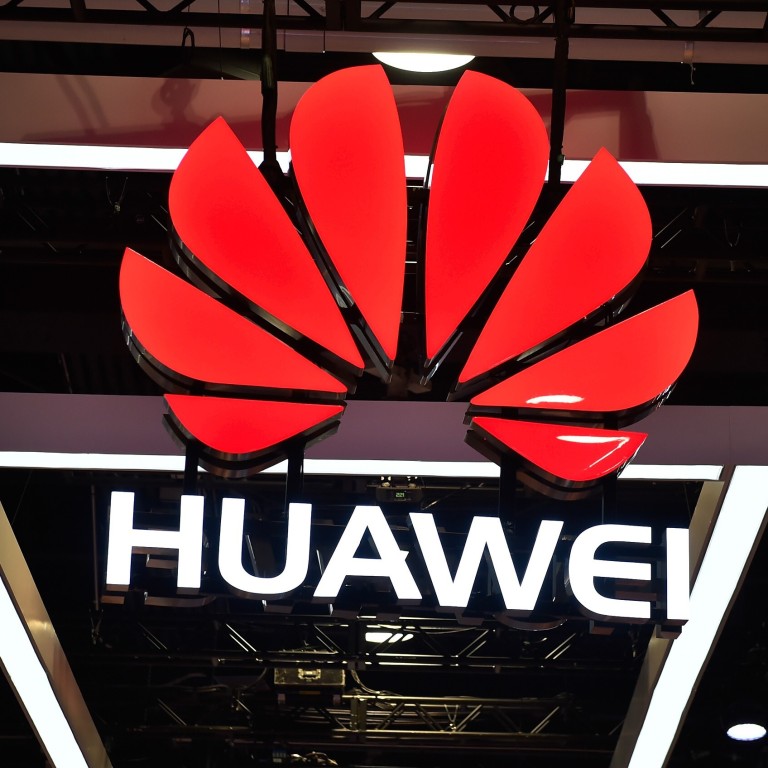
Huawei could feel chill wind in Europe if UK decides to block China giant from UK networks
- British media reported that the National Cyber Security Centre of GCHQ has decided that US sanctions against Huawei have had a ‘severe’ impact
Britain’s reported plan to phase out Huawei Technologies from its mobile networks from this year raises fresh questions about the Chinese telecom giant’s business prospects in Europe, with Germany set to decide on its rules for 5G network roll-outs after the summer break.
In London, a decade of building warm business ties with China has been replaced with rising suspicion and scepticism, most recently culminating in the diplomatic stand-off over Beijing’s recent imposition of a national security law on Hong Kong, a former British colony.
US telecoms regulator designates China’s Huawei and ZTE as security threats
The report is expected to be submitted to Johnson this week, and ministers on the National Security Council, led by the prime minister, will be asked to approve a policy shift in the next two weeks to ban the purchase of any new Huawei equipment by the end of this year.
That paves the way for Huawei technology to be removed from existing parts of the 5G network by 2026 or 2027, with its 4G and 3G products to follow, The Sunday Times reported. The news was also reported in The Sunday Telegraph, and confirmed by the BBC and Sky News.
“We are working closely with our customers to find ways of managing the proposed US restrictions so the UK can maintain its current lead in 5G. As ever, we remain open to discussions with the UK government,” said Huawei vice-president Victor Zhang on Monday. “We believe it is too early to determine the impact of the proposed restrictions, which are not about security, but about market position.”
Iain Duncan Smith, a former Tory leader who is part of the 59-strong Huawei Interest Group of Conservatives, urged Johnson to take swifter action against Huawei.
“Huawei should be got rid of, out of the system, before the election in 2025, because if you are not going to use Huawei, then you need to get on with it,” said Duncan Smith, who also co-led the Inter-Parliamentary Alliance on China.
Can China’s fledgling chip sector rescue Huawei?
If London decides to ban Huawei and walk back from Johnson’s policy earlier this year to allow the tech giant a maximum 35 per cent share in Britain’s non-sensitive 5G equipment, Germany will feel the most heat.
While lawmakers from Chancellor Angela Merkel’s ruling conservatives have backed a position paper on 5G mobile networks that stopped short of banning Huawei, her government will be drawing up rules on installing components in the future 5G mobile communications network in or after September.
Deutsche Telekom – Huawei's largest customer in Europe – has argued against any blanket bans on individual foreign vendors.
“Deutsche Telekom has been peddling such exaggerations to the German government and people,” a high-ranking US official, speaking on condition of anonymity, told the South China Morning Post.
The US has threatened to cut off intelligence sharing with Germany if Berlin follows through on allowing Huawei to build the 5G infrastructure.
“Hopefully, [the UK government’s plan] will allow Germany to make a security decision that is in the interests of its people and companies, protecting them from Chinese Communist Party spying and disruption,” the US source said. “The UK’s policy move in the direction of eliminating Huawei exposes the misleading statements by telecom operators.”
Huawei has repeatedly denied that it has any links with China’s military and security agencies.
For months, Berlin has been resisting Washington’s pressure to completely ban Huawei – which has already had long-term working relationships with Germany’s main telecoms operators – by pointing at the UK approach to draw a distinction between “core” and “noncore” parts of the networks.
“If Britain follows through with phasing out Huawei … this would have a significant impact on the German debate, especially as the latest discussion is not only linked to questions of security and dependence, but also Huawei’s ability to actually deliver given US trade restrictions,” said Janka Oertel, director of the Asia programme at the European Council on Foreign Relations.
China-Brazil trade on track, but Huawei tension may threaten relations
“It would give those calling for a de facto exclusion of Chinese vendors in German 5G networks strong arguments and would make it much harder to defend a German ‘Sonderweg’ [special path],” she added.
Last year, China’s ambassador to Germany threatened Berlin with retaliation if it excludes Huawei as a supplier of 5G wireless equipment, citing the millions of vehicles German carmakers sell in China.
In France, Huawei won a partial victory on Sunday as the cybersecurity agency ANSSI ruled out a total ban.
“There won't be a total ban,” Guillaume Poupard, the head of ANSSI,” told Les Echos newspaper in an interview “(But) for operators that are not currently using Huawei, we are inciting them not to go for it.”
France's decision over Huawei's equipment is crucial for two of the country's four telecoms operators, Bouygues Telecom and SFR, as about half of their current mobile network is made by the Chinese group.
These two operators, according to Poupard, will be allowed to use Huawei for “three to eight years”.
State-controlled Orange, meanwhile, has already chosen Huawei's European rivals Nokia and Ericsson for its network infrastructure.
Additional reporting by Celia Chen in Shenzhen.

